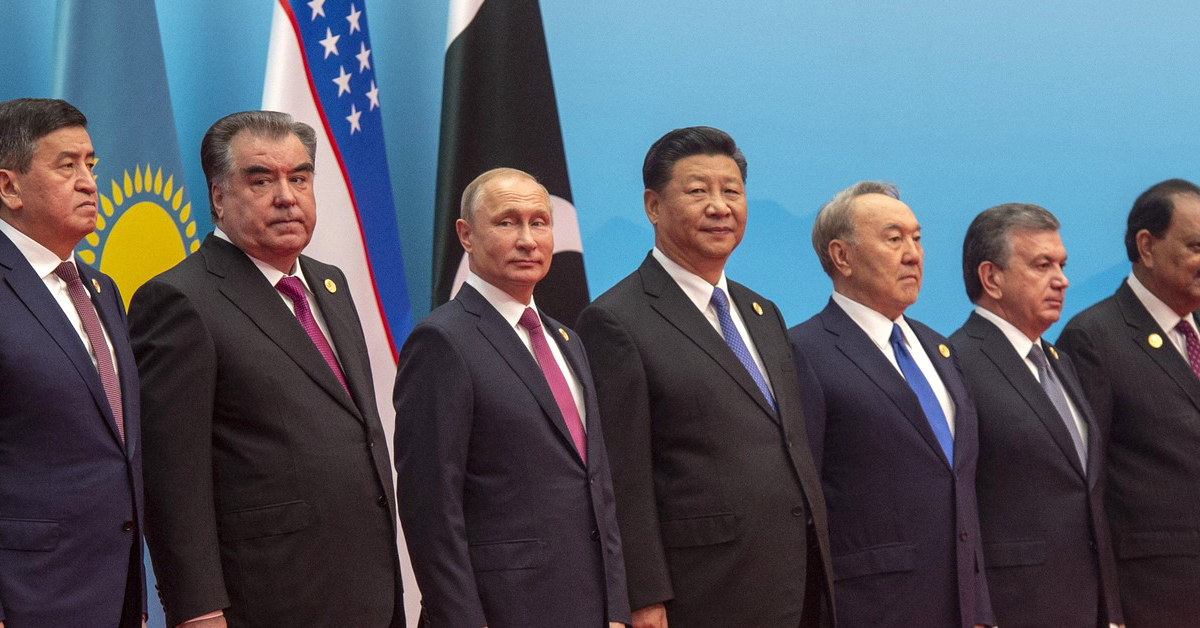This was published by the China-Global South Project on 11 June 2022. China Foresight is affiliated with the China-Global South Project and regularly provides opinion pieces for the weekly IDEAS China-Global South newsletter. Click here to subscribe to the newsletter.
The UN High Commissioner for Refugees (UNHCR) has estimated that the number of forcibly displaced people across the globe now surpasses 100 million. Weak economic growth, compounded by an emerging food crisis, is likely to inflate this figure further. Humanitarian efforts are currently underway to accommodate the 6.9 million Ukrainians that have been displaced abroad by Russia’s invasion.
In March, Chinese foreign ministry spokesperson Wang Wenbin spared no opportunity to highlight Western hypocrisy in this regard: “It is an unacceptable double standard to sympathize with refugees in Ukraine while turning a blind eye to refugees from countries in the Middle East, Africa, and Latin America.” Other international commentators have likewise argued that the West’s response to Ukraine’s outflux of refugees betrays a racism that is embedded in poor global governance around displacement.
On Tuesday, Zhao Lijian took another shot at the US’s refugee policy as Biden convened the Summit of the Americas. “The serious issue of migrants and refugees faced by the US is a boomerang of its own hegemonic and bullying practice,” Zhao said, “… and the US [should] adopt concrete measures to protect the human rights and other basic rights of migrants and refugees.” So, is the PRC the flag-bearer of reformed refugee governance?
A new paper by Emily Venturi of Chatham House finds that China is steadily increasing its engagement with the UN system of refugee protection. Using UN channels, China is providing increased relief and assistance to countries with large refugee populations such as Jordan, Lebanon, and Bangladesh. China is also making more commitments at UN-led multilateral forums, where China’s diplomats promote a developmental approach to address the root causes of displacement.
In Afghanistan, for example, the Chinese government and Chinese civil society organizations have provided substantial humanitarian aid for IDPs since the Taliban’s takeover last year. In May, a distribution ceremony held by the China South-South Cooperation Assistance Fund (CSSCAF) and UNHCR in Kabul exemplified how Beijing sees this space as an opportunity to bolster its image as a provider of global public goods.
However, Venturi argues that overall “refugee relief is not a priority for Chinese engagement in global governance… China’s contributions to refugee relief are sporadic and limited in comparison to leading humanitarian donors.” China’s annual contribution to UNHCR in 2021 was $5 million USD, a fraction of most other major powers’ contributions. And China has not shown an increased willingness to take on resettlement responsibilities.
Despite an uptick in the provision of ad hoc relief, China’s criticism of refugee governance is not yet accompanied by a comprehensive alternative. This is due to a number of factors: the lack of a national refugee protection framework in China’s domestic law, negative public perceptions of refugees, and China’s readiness to fall back on the principle of non-interference when confronted with the complex local political implications of displacement in foreign countries. There is also a sentiment that to host refugees would be to unfairly burden China with the consequences of Western intervention.
This year marks the fortieth anniversary of China’s accession to the 1951 Refugee Treaty and its 1967 Protocol, which it signed in 1982 following the displacement of 250,000 Vietnamese, Cambodian and Lao into China in the late 1970s. China is one of the few countries in Asia to have signed the treaty. However, despite being on China’s legislative agenda, it has not fully been incorporated into Chinese domestic law and there is still no clear legal definition of a refugee within China. China is also well known to violate the principle of nonrefoulement by repatriating North Korean and Burmese refugees.
Developing countries host 85% of the global refugee population. Chinese diplomats visiting global south countries often highlight shared challenges to development and shared histories of colonialism – but a major difference is the PRC’s distance from the practical challenges of refugee resettlement. For a country that has expansive economic and political relations with these countries, it is notable that China remains a relatively limited stakeholder in governance around displacement. An increase in China’s engagement in this area should be welcomed.
If China is indeed out to meaningfully reshape the international order, alternative approaches to refugee governance from a south-south perspective could be a starting point. In a world composed of sovereign states, refugees are not anomalies of the international order but are instead a defining feature. This structural dilemma holds particular importance for China given its very concrete understanding of sovereignty.
China has actively sought to become a leader in shaping and reforming development finance, climate regimes, and global public health. But in an age of displacement crises, beyond criticizing the US, could the protection of refugees become a priority in China’s approach to global governance?
This article gives the views of the author, and not the position of the China Foresight Forum, LSE IDEAS, nor The London School of Economics and Political Science.
The blog image, “Syrian refugees having rest at the floor of Keleti railway station. Refugee crisis. Budapest, Hungary, Central Europe, 5 September 2015” is licensed under CC BY-SA 4.0.





